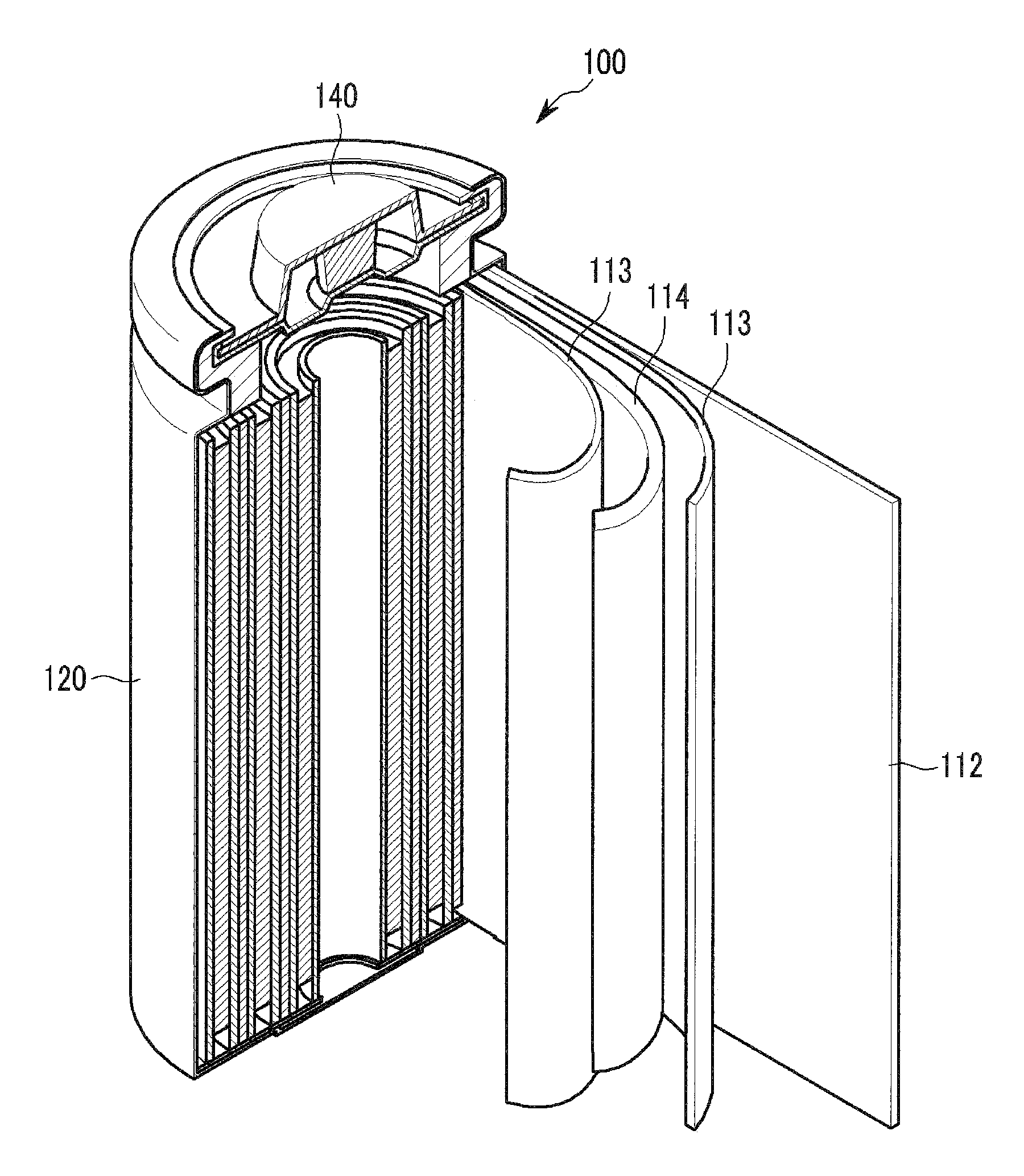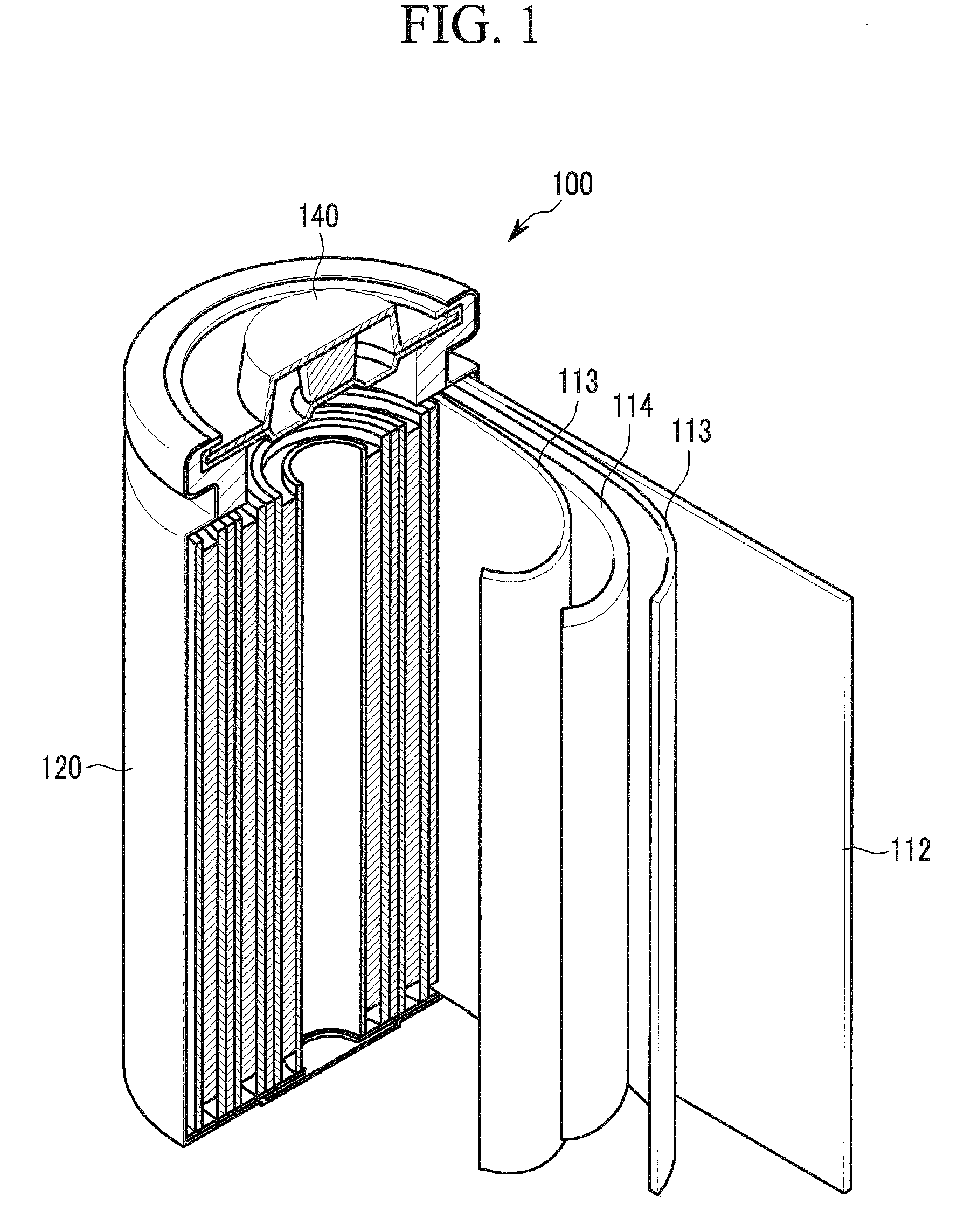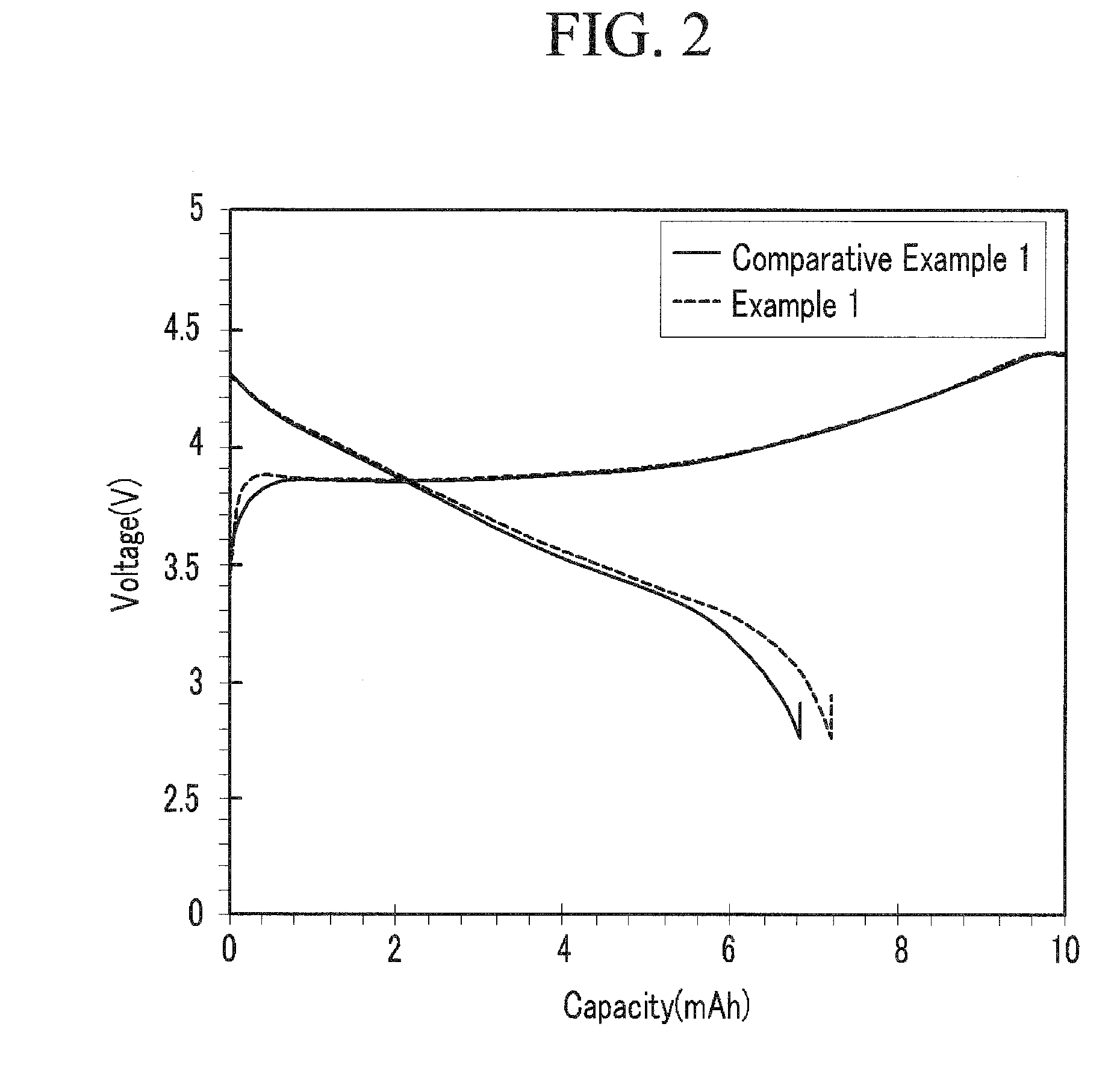Negative electrode for rechargeable lithium battery, and rechargeable lithium battery including the same
a lithium battery and negative electrode technology, applied in the direction of electrochemical generators, cell components, non-fibrous pulp addition, etc., can solve the problems of low density of graphite, low energy per unit volume, swelling or capacity reduction, etc., to improve the cycle-life characteristics of lithium batteries, reduce volume change, and improve formation efficiency
- Summary
- Abstract
- Description
- Claims
- Application Information
AI Technical Summary
Benefits of technology
Problems solved by technology
Method used
Image
Examples
example 1
Fabrication of a Negative Electrode
[0145]A silicon oxide negative active material (SHR12, Shin-Etsu Chemical Co., Ltd.) was mixed with carboxylmethylcellulose having a weight average molecular weight (Mw) of 90,000 dissolved in water, and polyacrylic acid with a Mw of 100,000 dissolved in water to provide a composition for forming an active material layer. The carboxylmethylcellulose and polyacrylic acid were provided in a mole ratio of 73.5:26.5 on a dry basis, the mixture included 93 wt % of the silicon oxide negative active material, 5 wt % of carboxylmethylcellulose, and 2 wt % of polyacrylic acid.
[0146]The composition for forming an active material layer was screen-printed on a Cu current collector and then heat-treated at 90° C. Then, it was heat-treated again at 200° C. under a vacuum pressure of 1×10−6 Torr to provide a negative electrode.
example 2
Fabrication of a Negative Electrode
[0147]93 wt % of a silicon oxide negative active material (SHR12, Shin-Etsu Chemical Co., Ltd.), 4 wt % of carboxylmethylcellulose, 2 wt % of polyacrylic acid, and 1 wt % of super-P as a conductive agent were mixed in water to provide a composition (having a 69:31 mole ratio mixture of carboxylmethyl cellulose and polyacrylic acid) for forming an active material layer.
[0148]The composition for forming an active material layer was screen-printed on a Cu current collector and heat-treated at 90° C. Then, it was heat-treated again at 200° C. under a vacuum pressure of 1×10−6 Torr to provide a negative electrode.
example 3
Fabrication of Negative Electrode
[0188]A composition for forming an active material layer was prepared by uniformly mixing 93 wt % silicon oxide negative active material, available from Shin-Etsu Chemical Co., Ltd., and 7 wt % binder composition. The binder composition was prepared by mixing carboxylmethyl cellulose (CMC) with a Mw of 90,000 dissolved in water, polyacrylic acid (PAA) with a Mw of 100,000 dissolved in water, and polyvinylidene fluoride (PVdF), available from Solvey Company, Hylar Latex 932, in a weight ratio of 1:1:1.
[0189]The composition for forming an active material layer was screen-printed on a Cu current collector and heat-treated at 90° C. Then, it was heat-treated again at 200° C. under a vacuum pressure of 1×10−6 Torr to provide a negative electrode.
PUM
| Property | Measurement | Unit |
|---|---|---|
| temperature | aaaaa | aaaaa |
| tensile strength | aaaaa | aaaaa |
| adhesion strength | aaaaa | aaaaa |
Abstract
Description
Claims
Application Information
 Login to View More
Login to View More - R&D
- Intellectual Property
- Life Sciences
- Materials
- Tech Scout
- Unparalleled Data Quality
- Higher Quality Content
- 60% Fewer Hallucinations
Browse by: Latest US Patents, China's latest patents, Technical Efficacy Thesaurus, Application Domain, Technology Topic, Popular Technical Reports.
© 2025 PatSnap. All rights reserved.Legal|Privacy policy|Modern Slavery Act Transparency Statement|Sitemap|About US| Contact US: help@patsnap.com



